by Peter Zazzali | Jul 23, 2016 | Blog |
I just returned from directing Waiting for Godot at one of Australia’s leading actor training programs, the Queensland University of Technology (QUT).
Under the astute leadership of Mark Radvan, QUT provides on-camera training unlike any other I’ve encountered. Student actors learn the ins and outs of performing for the camera from industry professionals possessing a wealth of experience directing and/or casting for film and television. As a result, students finish the program skilled in the language and practice of on-camera acting, a goal exemplified by custom-made “show reels” documenting their work. During my residency, we were visited by one of Sydney’s premiere talent agents who confirmed that QUT actors were especially accomplished in this area of their craft.
While QUT’s on-camera training is unquestionably excellent, their offerings in voice and movement for the stage are somewhat underdeveloped.
Given the limitations of time and scheduling that any acting program undergoes, it stands to reason that resources in one element of training might be compromised while focusing on another. My own experience at the now defunct MFA program at the University of Delaware demonstrated as much, insofar as we were exclusively trained for classical theatre without any time dedicated to on-camera acting. After graduation I found it very difficult to act in film and television because I simply wasn’t prepared for it. Are training actors for the stage—especially the classical stageand preparing them to work in film and television pedagogically antithetical? Is there a way to do both effectively? How does the limitation of resources such as time and money factor into such a proposition?
by Peter Zazzali | Apr 29, 2016 | Acting/Drama Schools, Actor Training, Actor Training Approaches, Blog
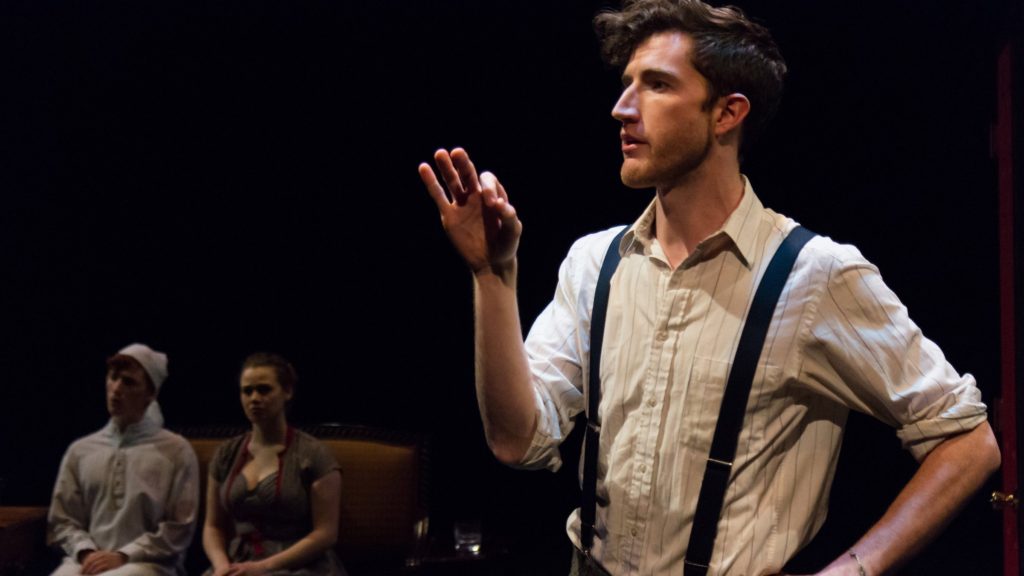
I recently had the pleasure of directing the Junior Class actors at the University of Minnesota/Guthrie Theater BFA program.
The training is rich in its classical approach paying particular attention to the fundamental skills of the stage actor’s craft: a strong and sonorous voice, a facility for speaking heightened language, a flexible and supple body, and an inventive imagination. From the U of M I went to Australia, where I am currently visiting the Victorian College of Art’s BFA Acting/Performance Maker Program. I am particularly interested in the latter half of this program’s identification (Performance Maker), insofar as it aims to apply the traditional skills that I mentioned about the Guthrie program with a more holistic pedagogy training actors in the context of a multidimensional artist.
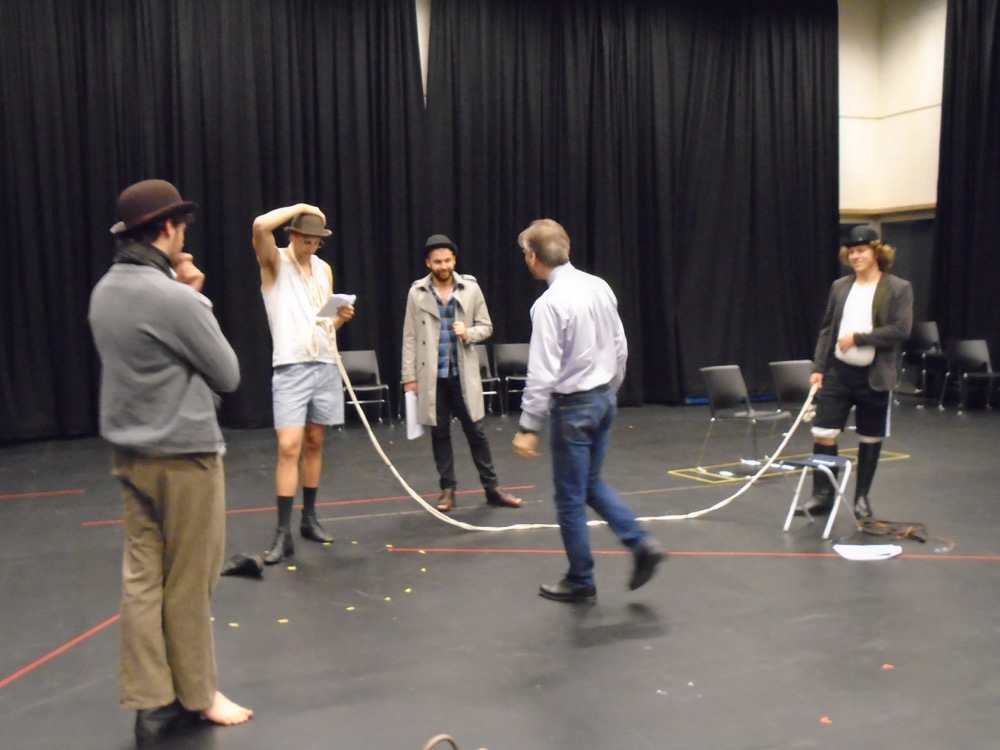
Through a curriculum consisting of conventional approaches (e.g, voice/speech/acting technique) combined with a range of courses that include critical studies, devised performance, practice-based research, and initiating independent projects, VCA strikes a pedagogical balance that is worthy of consideration.
Is there room for such a balanced approach in US actor training?
How might teachers, students, and programs alike adjust our current practice in favor of a more multidimensional approach? Is it possible to do so without degrading the essential skills a stage actor needs to learn?
by Peter Zazzali | Mar 3, 2016 | Acting/Drama Schools, Actor Training, Actor Training Approaches, Blog
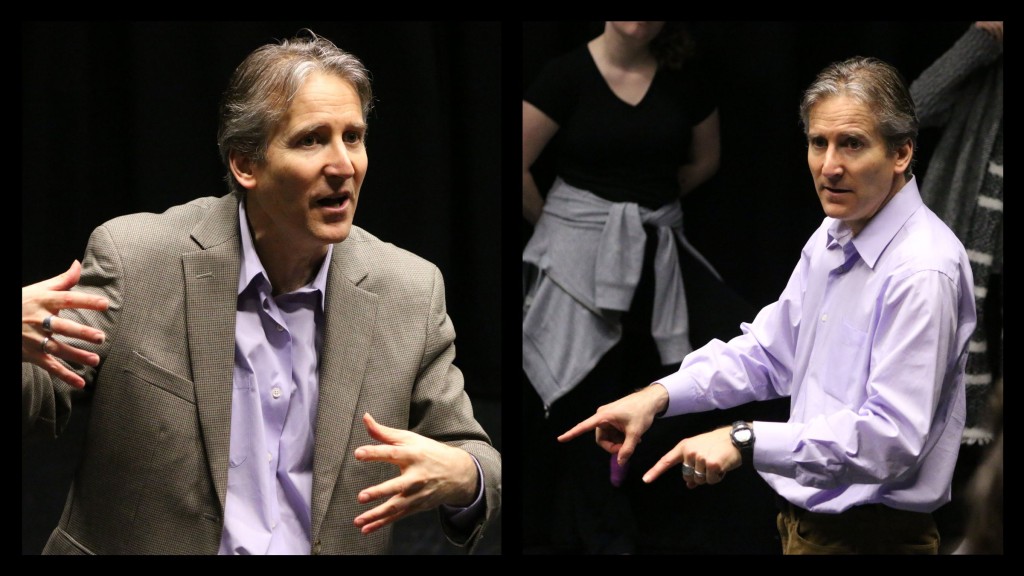
I just returned from a fruitful trip to Ireland and the UK, where I had the honor of conducting workshops and researching some internationally recognized drama schools.
In addition to the National Theatre School of Ireland, I visited the Royal Welsh College of Music and Drama, Guildhall School of Music and Drama, Rose Bruford College, and numerous others. One of the salient themes coursing through the 22 conservatories constituting “Drama UK” and the pair representing Ireland is a search for pedagogical balance between tradition and progress. (more…)
by Peter Zazzali | Jan 1, 2016 | Acting/Drama Schools, Actor Training, Blog |
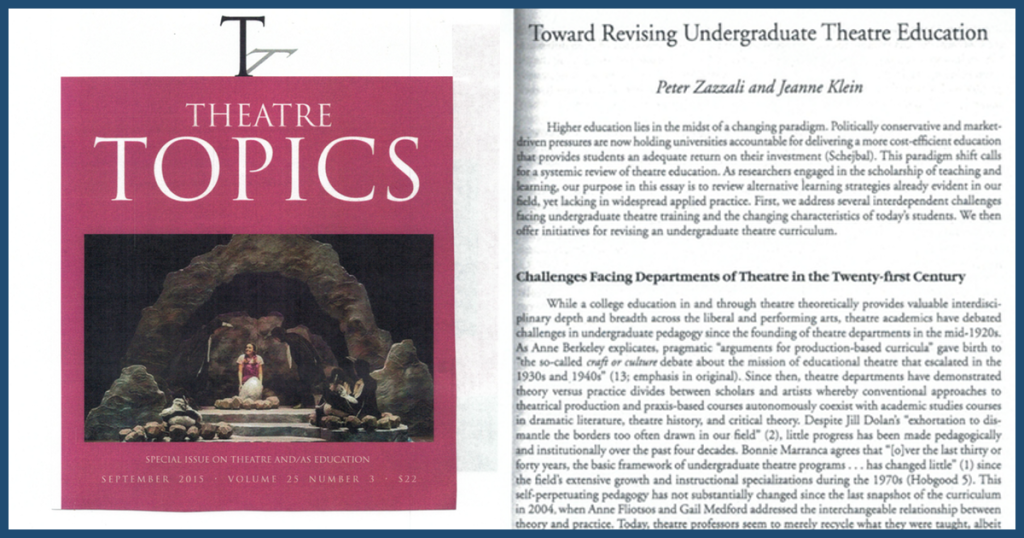
With 2016 upon us, thousands of applicants for the more than 250 BFA/MFA acting programs are preparing entrance auditions for January/February.
Presumably, they have their heart set on having a professional acting career consisting of a balance of stage and on-camera work. One wonders if these wide-eyed aspirants are aware of the grim statistics that lay ahead. (more…)
by Peter Zazzali | Oct 10, 2015 | Acting/Drama Schools, Actor Training, Blog |
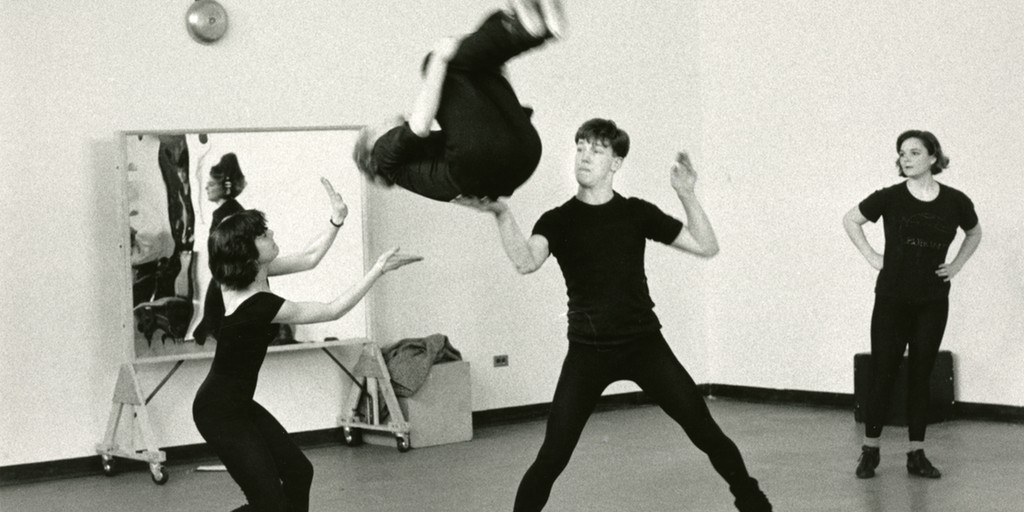
Today the profession has become even more competitive as an increasing number of actors are entering an unstable job market.
When the League of Professional Theatre Training Programs began in 1972 there were only a handful of university-sponsored acting programs, currently there are nearly 300. At the time, regional theatres contracted actors on a yearly basis thereby providing them with professional stability. This situation began to change during the middle-1970s when external sources of funding for these theatres decreased. Nevertheless, university acting programs have proliferated ever since. From Alaska and Hawaii to Florida and Maine, BFA and MFA programs have become ubiquitous at America’s colleges over the past twenty years despite the fact that the professional demand is simply not there. (more…)





